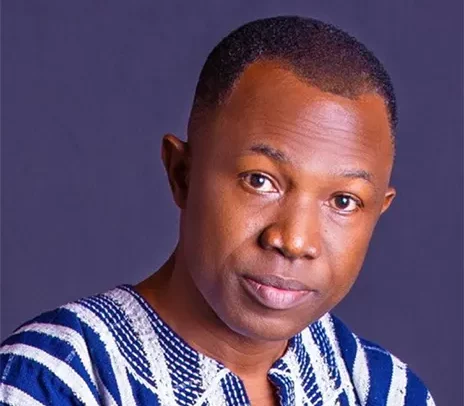The writer
Few issues in Ghana’s education sector evoke as much passion as the language of instruction—a matter that goes to the heart of our culture and identity.
As Prof. K. A. Busia aptly observed in his seminal work, Purposeful Education for Africa (The Hague: Mouton, 1964, p. 33), ‘To lose one’s vernacular is to impoverish one’s culture.’
The current debate—rekindled by Education Minister Haruna Iddrisu’s announcement that mother tongues will henceforth serve as the medium of instruction from KG to primary three—therefore touches the very soul of our nation.
While the Minister’s intent—to promote culture through language—is laudable, the practical implications call for sober reflection.
When Dr. Matthew Opoku Prempeh, assumed office as Minister of Education in 2017, he inherited a policy that required the use of selected Ghanaian languages from Primary 1 to 3, with English introduced as the main medium from Primary 4.
His decision to abolish this arrangement was not arbitrary; it was anchored in evidence, practicality, and a clear vision for educational excellence.
Ghana, with more than 70 distinct languages, presents one of Africa’s most linguistically diverse contexts. In such an environment, implementing a single mother-tongue policy has always proved nearly impossible.
Teachers are often posted to areas where they do not speak the local language, classrooms are linguistically mixed, and learning materials are scarce. These realities render the policy unworkable and undermine its noble objectives.
Defining a “mother tongue” in today’s Ghana is itself complex. Urbanisation, migration, and interethnic interaction have blurred traditional linguistic boundaries. A rigid imposition of one language risks alienating learners and distorting linguistic realities.
Given this reality—and the fact that no indigenous language has yet been accorded recognition as a national lingua franca—English continues to serve as the principal cohesive force uniting Ghanaians across linguistic and ethnic divides.
Its significance in the Ghanaian sociocultural and educational landscape remains both enduring and immeasurable. It is, therefore, essential to equip pupils and students with strong foundations in English to enhance communication, learning, and national integration.
At the home and family level, however, it is equally important that we make a conscious effort to imbue our children with proficiency in our respective indigenous languages, thereby preserving our cultural heritage while nurturing bilingual competence.
Global Realities And Future Competence
Dr. Prempeh recognised that, though English has colonial roots, it has become the global language of science, technology, diplomacy, and commerce, and for that matter, a passport to opportunity.
He, therefore, viewed English-medium instruction not as cultural surrender but as strategic empowerment, while allowing local languages to support comprehension where necessary.
Language carries deep cultural and political meaning. In many multilingual societies, debates over which local language should serve as the medium of instruction can evoke strong emotions and even threaten social harmony.
A balanced approach lies in maintaining a neutral language of instruction while ensuring indigenous languages are taught, respected, and examined to protect unity while celebrating diversity.
In the 2013 National Education Assessment, 80 percent of private-school pupils—taught primarily in English—met minimum competency in literacy and numeracy, compared to fewer than 50 percent in public schools.
Across Africa, similar experiments have faced hurdles. In Ethiopia, for instance, early learners instructed solely in local languages struggled when transitioning to English, a gap that eroded their confidence and performance. Dr Prempeh drew the lesson that Ghana could not afford a similar outcome.
The cost implications of a full mother-tongue policy were also sobering. Translating textbooks into numerous local languages and retraining thousands of teachers would demand a huge investment. Obviously, such resources could be better channelled into teacher development, infrastructure, and learning materials. His streamlined approach ensured that limited funds served core quality-improvement needs rather than linguistic fragmentation.
Dr. Prempeh’s policy preserved local languages as examinable subjects and ensured cultural transmission remained intact, while positioning English as Ghana’s shared and neutral language that fosters cohesion and opens global doors.
His leadership on this matter epitomised pragmatism and foresight. He resisted populist pressures, consulted evidence, and considered both the cultural and political dimensions of education. His approach affirmed identity while preparing Ghanaian children for the world stage, a delicate balance that few policymakers achieve.
The Way Forward
The path forward lies in bilingual literacy to ensure that every Ghanaian child learns to think, read, and express themselves proficiently in both English and their mother tongue. It is axiomatic to say that a people’s language anchors their identity. Yet identity without opportunity is a limitation. By sustaining Dr Prempeh’s balanced policy, Ghana can achieve both rootedness in culture and readiness for the world.
By Anane Agyei, Ph.D – Executive Director, Busia Institute for Rural and Democratic Development (BIRDD)


